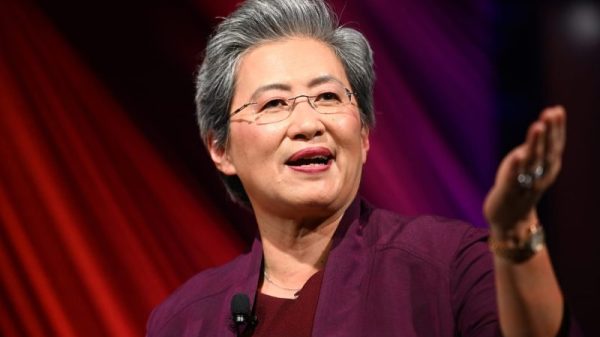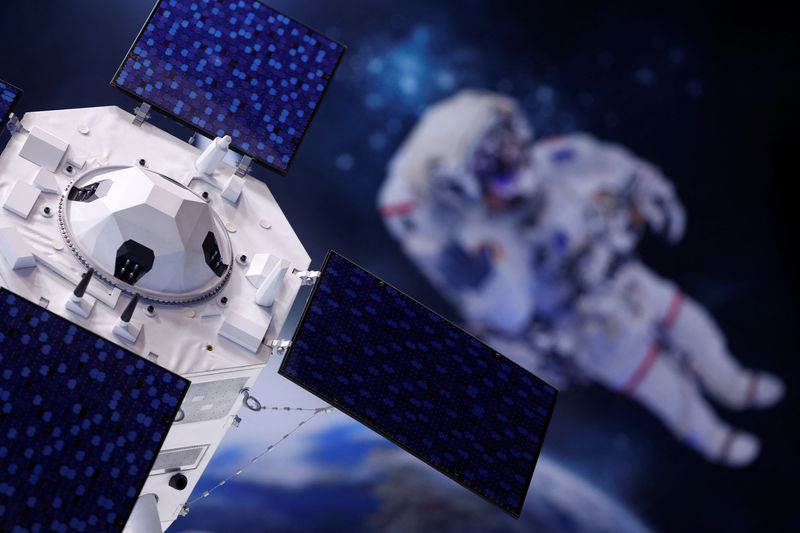By Joey Roulette, Tim Hepher and Giulia Segreti
MILAN (Reuters) – The world’s space agencies are meeting in Milan this week as geopolitical rivalry fuels a new global race in Earth’s orbit and on the moon, with heavy involvement from a private sector toiling to keep pace with Elon Musk’s dominant SpaceX.
The International Astronautical Congress (IAC) since 1950 has been a venue for the scientists, engineers, companies and political leaders of spacefaring nations to discuss cooperation, even in times of heightened tensions among world powers.
This year’s conference will put the space minds of two top rivals – the U.S. and China – under one roof. But Russia’s space agency Roscosmos, a storied power now isolated from the West after Moscow’s 2022 invasion of Ukraine, will have no official presence, highlighting the latest fault lines in space cooperation.
Still, nearly all of the 77 member countries of the International Astronautical Federation (IAF), the non-profit that organises IAC, have turned out for talks on what attendees expect will touch heavily on lunar exploration, NASA’s growing coalition of countries under its Artemis moon programme and Europe’s pressing need for more sovereign access to space.
IAF President Clay Mowry said a record 7,197 technical abstracts were submitted for this congress, and a record 37% of the papers would be given by students and young professionals.
“This is the most exciting time in space since the Apollo era in the 1960s,” he told Reuters.
NASA administrator Bill Nelson is expected to rally support at IAC for agency’s strategy to tap private companies to replace the ageing International Space Station after its 2030 retirement. The more than two-decade old orbiting science laboratory has been a symbol of space diplomacy led primarily by the U.S. and Russia, despite conflicts on Earth.
NASA, which is investing billions of dollars in its flagship Artemis moon programme, has been keen on maintaining a presence in low-Earth orbit to compete with China’s Tiangong space station, which has continuously housed Chinese astronauts for three years.
The U.S. and China are also racing to land this decade the first humans on the moon since the last American Apollo mission in 1972. The two space powers are aggressively courting partner countries and leaning heavily on private companies for their moon programmes, shaping the space objectives of smaller space agencies along the way.
EUROPE’S PRIORITIES
IAC comes as Italy’s parliament starts the approval of the country’s first legislative framework for the space industry, which also establishes rules and responsibilities for private investments in the sector.
“These rules gives the national ecosystem guidance on how to reach our objectives and grant the use of space in a sustainable and useful way,” Italy’s Industry Minister Adolfo Urso said on Sunday.
Italy, among the top contributors to the European Space Agency, recently pledged 7.3 billion euros ($7.98 billion) to 2026 for both national and European projects.
The rise of disruptive space technologies, private competition spurred largely by SpaceX and geopolitical tensions has forced Europe to redraw its priorities for both launchers and satellites.
Musk’s SpaceX and its workhorse Falcon 9 is relied upon by much of the Western world for accessing space, driving countries – including the U.S. – to encourage new space upstarts that can offer more affordable rockets. And SpaceX’s growing Starlink internet network has made the company the world’s largest satellite operator.
After a year-long hiatus, Europe regained uncrewed access to orbit with the test flight of its Ariane 6 launcher in July. But capacity remains constrained by the cutting of ties with Russia, whose Soyuz rockets played a key role for the continent before the Ukraine war.
Europe’s satellite manufacturing industry is also facing growing pressures as a once-thriving market for its large, bespoke geostationary satellites faces heavy pressure from constellations in low Earth orbit such as SpaceX’s Starlink.
Italy’s Leonardo, one of the hosts of the week-long event, has called for a new strategy for the space sector embracing its French joint venture partner Thales and their main rival in satellite manufacturing, Airbus.
Industry sources say the three companies are involved in preliminary talks about combining their satellite activities, but much will depend on the attitude of a new European Commission, which blocked past efforts to forge a single player.
European strategists argue space is a worldwide market, and forcing European companies to preserve choice within the same region misses the bigger picture of global competition.
NASA’s effort to seed privately built replacements to the ISS is driving some transatlantic tie-ups, such as the joint venture formed this year between Airbus and U.S. space operations firm Voyager to help capture European demand for low-Earth orbit research and operations.

































